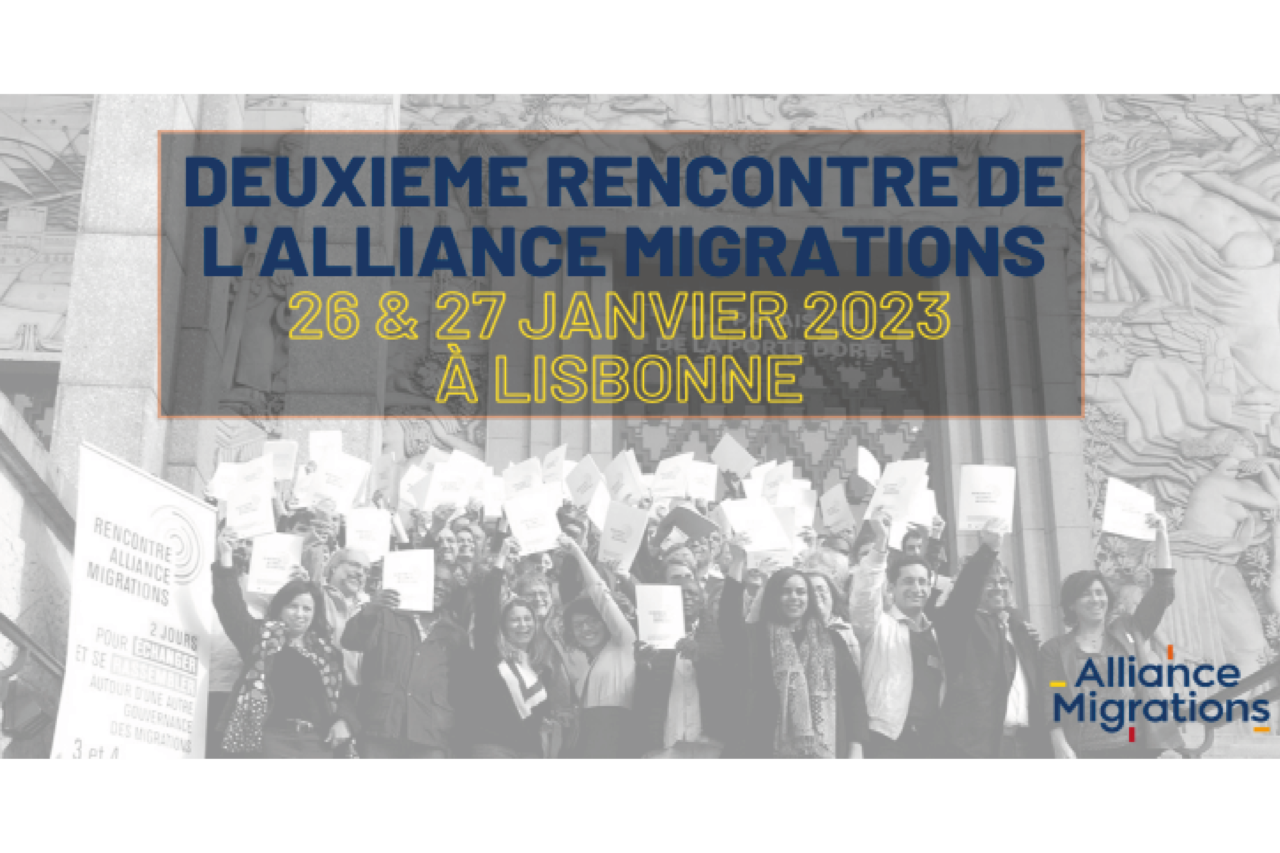2nd migration alliance meeting: seeking alternative policies to protect migrants' rights

This event, taking place in Lisbon on 26 and 27 January, seeks to develop local solutions that can be applied to the global governance of migration
On 26 and 27 January, Lisbon will host the second meeting of the Migration Alliance, organised by the French networks OUC (Organisation for Universal Citizenship) and ANVITA (National Association of Welcoming Cities and Territories). It will gather local authorities, politicians and civil society who advocate migration policies that respect fundamental human rights. There will be round table discussions and workshops on a reception model based on three cross-cutting axes – universal access to rights, social and political participation and the promotion of a positive discourse on migrants and interculturality. The aim is to strengthen the Alliance and draw up a joint work plan to improve migration and reception policies around the world.
“We want a work plan that enables us to put theories into practice, to ensure there is a real exchange of learning between all those involved and that we can truly promote policies to defend migrants’ rights. We hope to see great changes, particularly in the discourse on migration, to make it something positive for society”, explains Paulo Iles, philosopher, activist and one of the organisers behind the Migration Alliance, whose long international career has focused on migration work in Europe and Latin America.
Portugal was chosen to host this meeting due to its position on migration. It was the first country to adopt a national implementation plan of the Global Compact for Migration, in addition to a migrant integration plan. Furthermore, Lisbon is a city that reaffirms its interculturality and translates this commitment into action through the implementation of its Municipal Plan for Migrant Integration. Paulo elaborates, “In the context of the European Union, Portugal is one of the countries that has one of the most developed and structured policies. It has a High Commission for Migration, an entire programme that is implemented through the National Plan for Immigrant Integration, executed by the local authorities, the municipal councils and civil society. It is a very inspiring model and it also allows us to connect with the Ibero-American region”.
Prominent participants at this Migration Alliance meeting include Damien Carême, MEP and co-president of ANVITA, Jeanne Barseghian, co-president of ANVITA, Carol Dartora, the first Afro-Brazilian federal deputy elected for the State of Paraná, Brazil, and Maria Dantas, the only Brazilian in history elected to the Spanish Congress, who defends the rights of immigrants.
There are many challenges. The organisers argue that it is essential to change the discourse on migration, to view it as something beneficial for society and to allocate resources to welcoming migrants. Furthermore, they state clearly that priorities need to be changed, given the high investment in security and little investment in integration. The Migration Alliance believes that this approach must be reversed, and that we must invest more in reception and integration processes, guaranteeing a safe and rights-based migration process, without violating migrants’ rights during the overall change process.
Migration is present throughout the history of humanity. We live through cycles and flows change. “I believe that the key achievement is the recognition of rights, not only in words, but through welcoming structures. Portugal has greatly progressed in this sense and teaches us that it is possible to move forward in terms of facilities, whilst also making progress in combatting racism and controlling migration-related crimes, by guaranteeing people’s right to come and go”, concludes Paulo Illes.
In acknowledgement of the contribution made by several key figures to the recognition of migrants’ rights, Universal Citizenship Passports will be awarded during the closing ceremony at 3pm on 27 January.
Migration Alliance
The Migration Alliance was created on 4 October 2019 in Paris, at the first meeting organised by the OUC and ANVITA, with over 180 participants (representatives from local authorities, voluntary sector organisations, networks, citizen collectives and trade unions) from 25 countries and 30 cities in Africa, the Americas and Europe. The Alliance works to promote alternative local policies, geared towards migrants and developed jointly by local authorities and civil society and with the participation of the people concerned.
The Migration Alliance also seeks to contribute to changing the discourse on migration and overcoming its negative image which, through the media, dominates the public arena. Instead of being the ideal scapegoats, it aims to see migrants become agents of a consolidated and renewed tradition of welcoming.
Paulo Illes
As a philosopher and activist, Paulo has a long international career dedicated to migration in Europe and Latin America, and has been the external representative of the Paris-based Organisation for Universal Citizenship since 2019. He was also in charge of analysis of migration and refugee issues in the cabinet of the new government of President-elect Lula in Brazil. He is the president of the organisation Diáspora sem Fronteiras in Cascais and coordinated the European Social Forum on Migration in Lisbon in 2021.
From 2013 to 2016, he was a migration policy coordinator in the City of Sao Paulo, Brazil, where he worked on creating Municipal Policy for the immigrant population in Sao Paulo (Municipal Law no. 16,478), the first in Brazil to establish guidelines for migrant policy at the municipal level.
Organisation: OUC and ANVITA
Partners: CCFD-Terre Solidaire, Universidade Nova de Lisboa, Rede sem Fronteiras, Emmaus International, Mouvement Utopia and Fondation Danielle Mitterrand.
Institutional partners: OEI and Casa do Brasil.
More information:
Marta Castagno
351 933 059 907
martacastagno@gmail.com
Ana Paula Bonifácio
351 912 736 537
apobonifacio@gmail.com